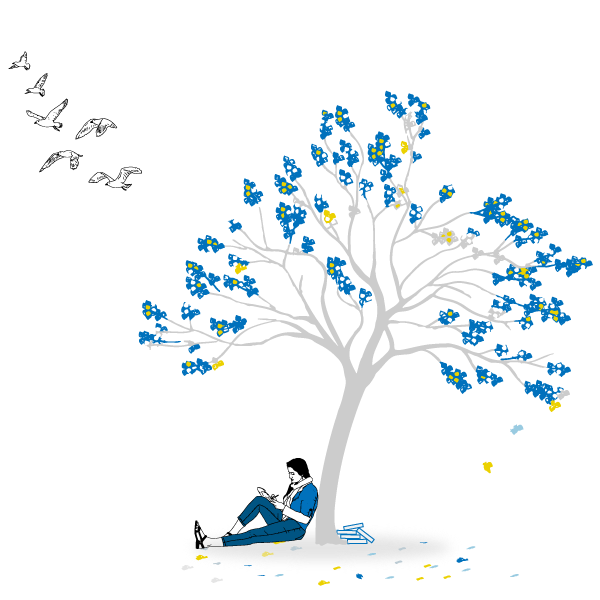An epitaph for Yesterdays
July 7, 2013
Still Sundays
Imagine today marks your first month on the biggest cruise ship ever designed. It can hold up to 100,000 people comfortably. It provides an alternative mode of living for months on end. The original ticket is expensive and it is not all-inclusive; one still has to buy additional tickets once on board, depending on availability. There is lots to do on this cruise ship: fine dining, gambling, ‘traveling art exhibits’, gorgeous sea views, fresh squeezed juices, grill your own meals under the guidance of top chefs, spacious sun decks, water-coasters, adults-only retreats, picnic areas, shopping, exercise gyms and yoga classes, live theater, a variety of bands, movies under the stars, golf, zip-lining, mountain climbing in case you miss the mountains while aboard, and so much more. Now imagine it has been brought to your attention that the ship is not doing so well. It is getting overcrowded, it constantly needs fixing, and although there are no rumors of a Titanic-sink-down yet, it is very clear that pretty soon some people have to get off this ship or fix it, otherwise it will not be able to provide most of its services and may even sink. What would you do? Continue to utilize all the amenities as if nothing was wrong or try to fix the ship or get out of the ship? What if getting off the ship was no longer an option? Then would you try to fix it?
I know I would have never willingly gotten on that ship to begin with; it is my definition of hell.
Of course the analogy here, however poor, is comparing the ship to our planet earth.
My current awareness about climate change has truly disturbed me. This has raised beyond the obvious concerns: What is the point of fighting for any rights or establishing new technologies if there is not going to exist a place to enjoy them? Are humans really the most myopic species?
The average rise in temperatures in most of southern California has been astonishing. News about Death Valley setting a record high of 129 degrees earlier this month is readily available to anyone paying attention. The record for highest temperature ever recorded, 134 degrees Fahrenheit, also in Death Valley, was on July 10, 1913.
Life on earth has continued despite that hot day on July 10, 1913. Rosa Parks and Richard Nixon were both born that year as Albert Einstein continued work on his theory of gravity. That same year Ghandi began his “Great March” for Indian Rights in South Africa, Harriet Tubman passed on, and the year ended with a disaster in Calumet, Michigan where 59 children died.
I have been rereading some of E.B. White’s essays, “Death of a Pig, “Ring of Time,” “The Essayist” etc. In his essay “The Essayist” he writes:
The essays in this collection cover a long expanse of time, a wide variety of subjects. I have chosen the ones that have amused me in the rereading, along with a few that seemed to have the odor of durability clinging to them. Some, like “Here is New York,” have been seriously affected by the passage of time and now stand as period pieces. I wrote about New York in the summer of 1948, during a hot spell. The city I described has disappeared, and another city has emerged in its place—one that I’m not familiar with. But I remember the former one, with longing and with love. David McCord, in his book About Boston tells of a journalist from abroad visiting this country and seeing New York for the first time. He reported that it was “inspiring but temporary in appearance.” I know what he means. The last time I visited New York, it seemed to have suffered a personality change, as though it had a brain tumor as yet undetected.
If E.B. White was remembering and missing his New York of 1948 what do I know of missing how New York used to be? My New York seems counterfeit to begin with and that world too has slowly disappeared in the last decade.
I could run to Lahore but I just read this article where the author, Mohammad A. Qadeer, writes, “Once a small city of gardens and pedestrian charms, Lahore now has a chaotic population, a metro-bus service and a myriad of privatized pleasures.”
Prague? Durban? Paris? Where can I find cobblestones streets made for adagio walking that curve to tilt your head up to the sky? And there, while walking, in your un-knowing you come to understand the meaning of it all.
I am aware I can’t really run or escape this sense of misplacement I feel, even if I was in New York City. This doesn’t feel like nostalgia; it is an epitaph for yesterdays.
I have been trying to find and read blogs from pre-social-media era. There are very few of those and of these even fewer offer something substantial that is still worthy of reading today. After all, so much has changed since “AOL.” I did find one; it belongs to a teacher and professor named Richard Geib. A person can spend days exploring the various links within it; I am still not done—I had to remind myself there is no rush—and I remain fascinated by this person’s views, even when I don’t agree with them. I ended up there because I was searching for William Faulkner’s Nobel Prize speech where William Faulkner asserts, “I decline to accept the end of man.” Also, in the “Frequently Asked Questions” section I learned that a lawyer from Random House inquired where Richard Geib, the owner of the website, got permission to post that speech. That account doesn’t even seem plausible now given how everything—or almost everything—is on the Internet, with or without permission, and all that exists are “blogs” that curate others’ words.
The last paragraph from the “Ring of Time” by E.B. White is fitting:
It has been ambitious and plucky of me to attempt to describe what is indescribable, and I have failed, as I knew I would. But I have discharged my duty to my society; and besides, a writer, like an acrobat, must occasionally try a stunt that is too much for him. At any rate, it is worth reporting that long before the circus comes to town, its most notable performances have already been given. Under the bright lights of the finished show, a performer need only reflect the electric candle power that is directed upon him; but in the dark and dirty old training rings and in the makeshift cages, whatever light is generated, whatever excitement, whatever beauty, must come from original sources—from internal fires of professional hunger and delight, from the exuberance and gravity of youth. It is the difference between planetary light and the combustion of stars.
I end with what else was going on in 1913: Willa Cather wrote “O Pioneers!” and D.H. Lawrence finished “Sons and Lovers” and Rabindranath Tagore won the Nobel Prize for Literature and The Grand Central Terminal opened in New York City.
I don’t know whether we are going backwards or forwards in time. The question isn’t when is the world going to end or even if it is going to end. In fact, whatever the question, the answer is how we have decided to live now.


Interesting. Nothing wrong with “adagio walking” [inspired phrase of yours] to a different drummer even in an allegretto world–a world that is both too hot (in temperature and tempers) and too cold (in certain once-cherished ideals and ways of living). It is so necessary to write “epitaphs for yesterdays” [another great phrase] and observe carefully “the way we live now” (which is by the way the title of Anthony Trollope’s novel of social satire of the 1870s!). As you note in your reporting of 1913 events, they have such varied import. In this year 2013, we will one day report that the world cared enough for daily reports of the health of Nelson Mandela, because of respect, still, for the strength against the grain of the times (of any time really) that he has shown.